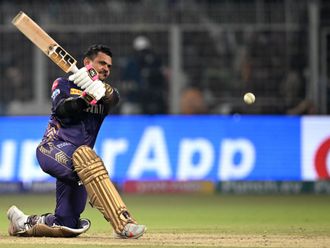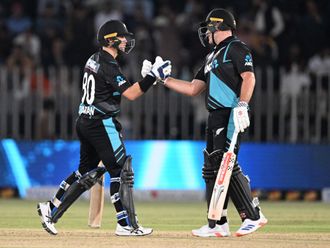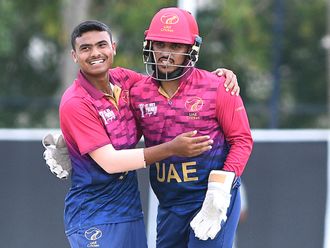Dubai: The chief executive officer of the International Cricket Council (ICC) is confident cricket can ward off any doping-related threats that may develop with the rise of the faster and more demanding T20 version of the sport.
The ICC became a World Anti-Doping Agency (Wada) signatory in July 2006, with its anti-doping code compliant with that of the world anti-doping body.
The world governing body for cricket, with its headquarters in Dubai, continues in its efforts to maintain the integrity of cricket while protecting the health and rights of all involved in the sport.
T20 cricket has made huge inroads, with a bulk of the fan base now focused on franchise-based leagues. These leagues are organised by member nations and have now managed to draw the best pool of talent from across the world, including the ongoing cash-rich Indian Premier League (IPL).
“The demands in cricket have increased due to the advent of T20 cricket. With so much of emphasis on big hitting and ensuring players recover quickly from injuries, there could be a risk that doping could make its way into our sport,” David Richardson, ICC chief executive, told Gulf News on the sidelines of the Sports Innovation Lab organised by the Dubai Sports Council (DSC).
“We are making sure we are implementing rigorous testing programmes both at the international level and liasing with member countries so that they too have programmes in place to identify any risk from this quicker and more entertaining version of cricket,” he added.
The 56-year-old South African wicketkeeper-batsman was appointed as the ICC’s first general manager and exactly 10 years later, he took over the new CEO of the ICC.
“In many sport, doping has been more of a problem than [spot and match] fixing. But in cricket unfortunately, it is the other way around as we got tainted a little bit more with the fixing than the doping. Now we have the Anti-Corruption Unit (ACU) in place to deal with the spot-fixing and match-fixing,” he related.
“Historically, cricket has been a very low-risk sport as far as doping is concerned but we need to do everything to ensure we stay like this,” he said.
Richardson backed modern methods to help raise the profile of sport, particularly cricket within the region.
“Things like the Innovation Lab will help us try and identify problems and challenges [that are] before our sport so that we can then come up with some ideas to try and resolve these issues,” he added.












